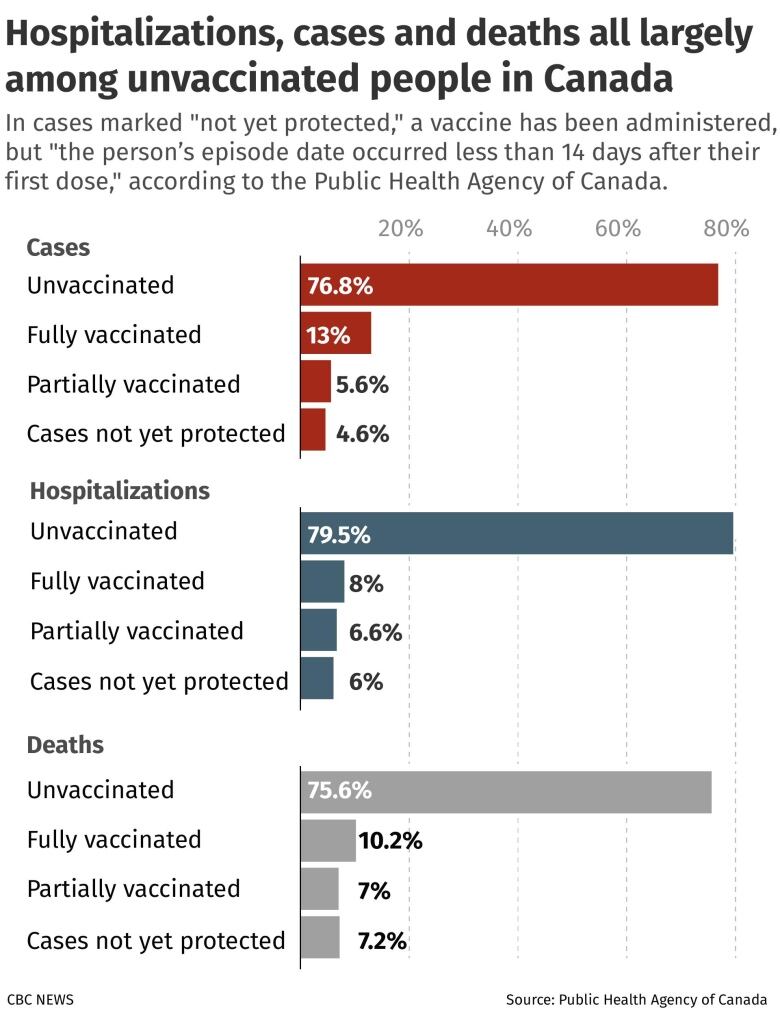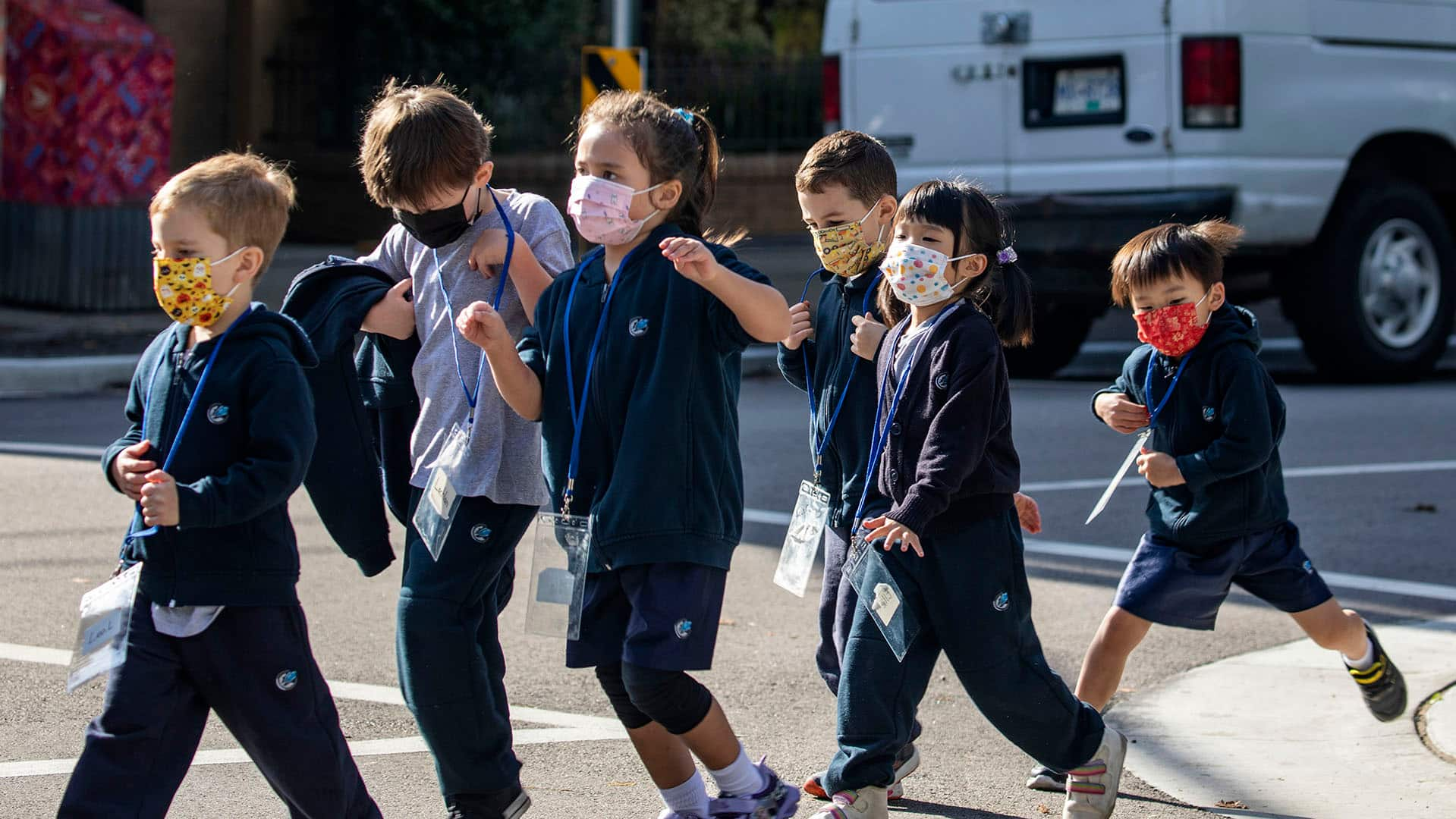
Canada enters messy stage with Omicron as testing, staff shortages kick in
The winter of Omicron discontent is firmly settling in across Canada, which had more than 344,000 active COVID-19 cases before Wednesday began.
British Columbia noted its COVID-19 hospitalizations are up 54 per cent in the past week, Ontario’s admissions climbed by nearly 800 on Wednesday and Quebec’s hospitalization number is getting uncomfortably close to its May 2021 pandemic peak.
Omicron is causing a never-before-seen surge in COVID-19 that has prompted provinces to reinstate curfews and gathering restrictions, shutter bars and restaurants and move schooling back online in a desperate attempt to mitigate the impact on hospitals.
This newsletter on Tuesday examined how Omicron’s high level of transmissibility is leading to staff shortages in health-care settings. Absentee rates are also climbing with consequence across the country for teachers, transportation workers and police services.
“Omicron is moving so quickly that it has become pretty much impossible to pin down the full extent of spread in real time,” said Dr. David Naylor, who led the federal inquiry into the 2003 SARS epidemic and co-chairs the federal government’s COVID-19 immunity task force.
“PCR testing capacity is overwhelmed,” Naylor added. “Rapid antigen tests [RAT] are inconsistently available. Those with positive RAT results often have no way to register them let alone confirm them.”
Because many provinces have had to scale back testing and reimpose restrictions, officials estimate the true number of people infected could reach eye-popping levels in the coming weeks.
“It’s going to be a mess. We have, once again, waited too long,” said Dr. Allison McGeer, a medical microbiologist and infectious disease specialist at Toronto’s Mount Sinai Hospital. “It’s really looking like the sheer numbers are going to stress, honestly, not just the hospitals but the ICU … and in the next two or three weeks from now, the hospital system is going to be really, really stressed again.”
The federal government said Wednesday an additional 140 million rapid tests will be delivered to provinces and territories this month. Health Minister Jean-Yves Duclos said the government is now in the process of delivering the tests, which will be allocated to provinces and territories on a per-capita basis.
The 140 million additional tests are enough to provide “one rapid test per week, per person, in Canada for January,” he said. Experts have said that rapid tests should be used two or three times a week to get a better sense of infectiousness. In addition, some European countries have integrated rapid tests into official reporting channels so the government can track case data, something not being contemplated here.
“Nothing demonstrates Trudeau’s failure to lead on COVID better than his complete failure on rapid tests. We have been pushing for leadership for 2 years,” Conservative Leader Erin O’Toole tweeted.
While Canadians now seem eager to snap up available tests, judging by long lines across the country, CBC News has reported previously on how gaps have developed down the line from Ottawa’s procurement to the provinces, regional public health units and school boards,
A National Post columnist is among those questioning the closures, pointing out with data that Canada’s case counts and hospitalizations are a good deal lower on a per capita basis than in France, Spain and the United Kingdom, where schools remain open. Few jurisdictions in Canada have given any indication that they will soon follow a “test to stay” process that the Centers for Disease Control in the U.S. has recommended in order to keep uninfected kids in school instead of pulling out entire classes and schools to remote learning, citing the difficulties seen in children with the prolonged pandemic.
“Let’s be honest, this isn’t how anyone wanted to be starting 2022 … I can tell you as a parent I’m very aware the kids are back in school virtually and I can understand people are frustrated,” Prime Minister Justin Trudeau said on Wednesday.
“But I also know that we know how to get through this,” Trudeau added. “We’re looking at a better spring as long as we all keep doing our part.”
From The National
Infectious diseases specialists Dr. Jacqueline Wong and Dr. Fatima Kakkar answers questions about COVID-19, including whether in-person classes are driving transmission in children. 5:59
Calls grow for inmate releases as COVID-19 caseloads climb in jails and prisons
The number of people in both federal and provincial institutions dropped by about 19 per cent during the first coronavirus wave, from 37,976 inmates in February 2020 to 30,580 people in June of the same year, according to data from Statistics Canada.
Without treatments at that time for those infected with COVID-19, there was a push to see some non-violent offenders serve sentences with restrictions outside institution walls. Those who can’t be released and test positive have ended up in isolation.
By December 2020, there were 31,981 people incarcerated across federal and provincial facilities, about 16 per cent below pre-pandemic levels.
“Since then … governments have taken their foot off the gas, and prisoners and prison staff have paid the price,” said Justin Piché, an associate professor of criminology at the University of Ottawa who has tracked pandemic case numbers as part of the Prison Pandemic Partnership initiative.
Experts and inmate advocates are again calling on governments to release some inmates in provincial jails and federal prisons as outbreaks of COVID-19 are being driven by the fast-moving Omicron variant.
A spokesperson for Correctional Service Canada (CSC) told CBC News that there are now COVID-19 outbreaks in eight federal institutions, including at La Macaza Institution in Quebec. Outbreaks in provincially run facilities include Central Nova Scotia Correctional Facility in Dartmouth, N.S.
“More than 80 per cent of the federal inmate population is considered fully vaccinated. Nevertheless, consistent with rising community transmission rates, we are seeing a surge in cases in correctional facilities,” Correctional Investigator Dr. Ivan Zinger told CBC News in a media statement.
There were 108 cases active in federal prisons as of Dec. 31, according to the department’s website on Tuesday, but Piché said in an interview with CBC Radio’s All In A Day this week that he hasn’t been able to get reliable data from a few provinces “in months.” As well, Piché’s data indicates there are currently a significant number of corrections staff infections.
Martha Paynter, a registered nurse and chair of Wellness Within, a group advocating for health equity in Nova Scotia, would like to see a decarceration process that involves granting early parole to inmates held in federal institutions. Many people in provincial jails are on remand awaiting trial, and that process could be accelerated, she said.
As importantly, said Paynter, the flow of admissions could also be reduced.
“Stop taking people into custody over petty bail violations, probation violations, et cetera,” she said.
Given that it’s expected Omicron is causing headaches in terms of absenteeism across employment sectors, that result could occur as a result of police shortages as much as any philosophical shift.
A police chief in Waterloo, Ont., for example, told a local news outlet this week his force has seen 37 positive staff members within the last month; the entire total for the first 20 months of the pandemic had been 33 staff members.
Even more seriously, staff shortages as a result of COVID-19 have created a state of emergency within the Winnipeg Police Service, it was announced Wednesday. The service has 90 active COVID-19 cases and 170 personnel are on COVID-19-related leave.
COVID-19 news from Brazil, France, Hong Kong, Scotland and U.S.
In France, parliament suspended debate on a new COVID-19 law early on Wednesday as opposition lawmakers demanded explanations from President Emmanuel Macron about comments in which he said he wanted to “piss off” unvaccinated people.
The draft bill will make it mandatory for people to show proof of vaccination to enter a restaurant, cinema or take the train.
France has historically had more vaccine skeptics than many of its neighbours, and pandemic restrictions have triggered many street protests, but it now has one of the highest COVID-19 vaccination rates in the European Union. Nearly 90 per cent of French people aged 12 and over have been vaccinated.
In the interview with Le Parisien newspaper published late Tuesday, Macron used the term “emmerder,” which is a slang verb that can also be translated to mean “piss off” or “annoy.” He also said unvaccinated people were “irresponsible” and that he planned to make their lives so complicated that they would end up having a vaccine.
Politicians from several parties criticized Macron’s comments as too harsh.
In Brazil, Rio de Janeiro has cancelled street parades and parties during its world-famous Carnival for a second year as a result of an increase in COVID-19 cases and the threat from the arrival of the Omicron variant, the city’s mayor said on Tuesday. However, the spectacular parade by Rio’s samba schools, which the public watches from the stands of the city’s Marques de Sapucai Sambadrome, will go ahead, unlike last year. Officials said precautions will be put in place for that aspect of the annual celebration.
In the United States, leaders of Chicago Public Schools cancelled classes Wednesday after the teachers union voted to switch to remote learning because of the surge in COVID-19 cases, the latest development in an escalating battle over pandemic safety protocols in the country”s third-largest school district.
Chicago has rejected a districtwide return to remote instruction, saying it was disastrous for children’s learning and mental health. But the union argued the district’s safety protocols are lacking and both teachers and students are vulnerable.
“This decision was made with a heavy heart and a singular focus on student and community safety,” the union said in a statement late Tuesday.
“I’m urging teachers. Show up to your schools. Your kids need you,” Mayor Lori Lightfoot said in a tweet, indicating in another social media she was “doing everything in my power” to prevent the impasse.
While the subject of remote learning and schools has become quite heated in the U.S., the White House COVID-19 team said in its regular briefing Wednesday that it’s data indicates that 96 per cent of American schools remain open for in-person learning.
In Hong Kong, authorities announced a two-week ban on flights from Canada and seven other countries, while holding 2,500 passengers on a cruise ship for coronavirus testing Wednesday as the city attempted to stem an emerging Omicron outbreak. The two-week ban on passenger flights also included Australia, France, India, Pakistan, the Philippines, Britain and the United States. It will take effect Sunday and continue until Jan. 21.
In Scotland, First Leader Nicola Sturgeon admitted Omicron presents a great challenge, but has rejected further restrictions, generally following a stance seen in the region with Britain and Ireland. Scotland will reduce the isolation time for vaccinated individuals who test positive for COVID-19 to seven days, she said.
Today’s graphic:

Find out more about COVID-19
For full coverage of how your province or territory is responding to COVID-19, visit your local CBC News site.
To get this newsletter daily as an email, subscribe here.
See the answers to COVID-19 questions asked by CBC viewers and readers.
Still looking for more information on the pandemic? Reach out to us at [email protected] if you have any questions.






More Stories
Fair share: the right office solution can take finding the right partner
Ontario faces crew shortages, aircraft issues in fight against wildfires | Globalnews.ca
Refugee attends open house at Downtown Eastside affordable housing facility – BC | Globalnews.ca